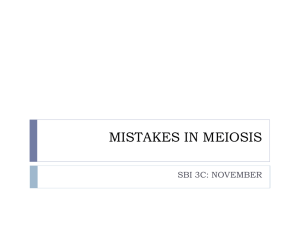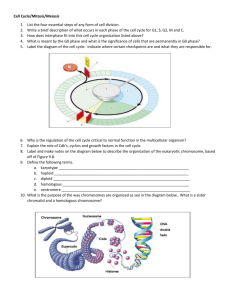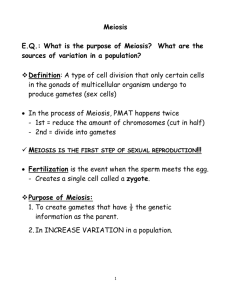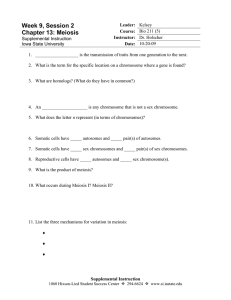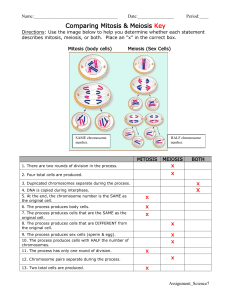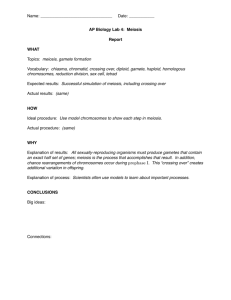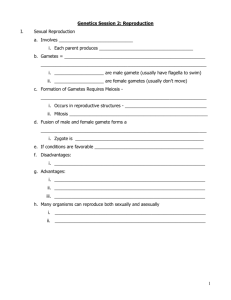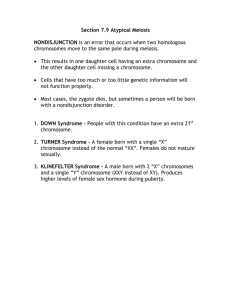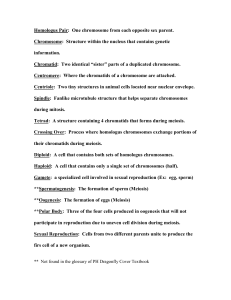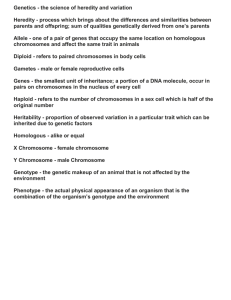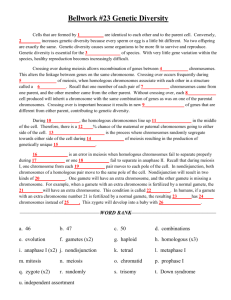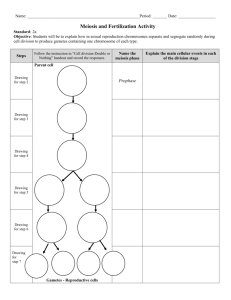Meiosis Vocabulary 1. Haploid- A cell with only one set of
advertisement
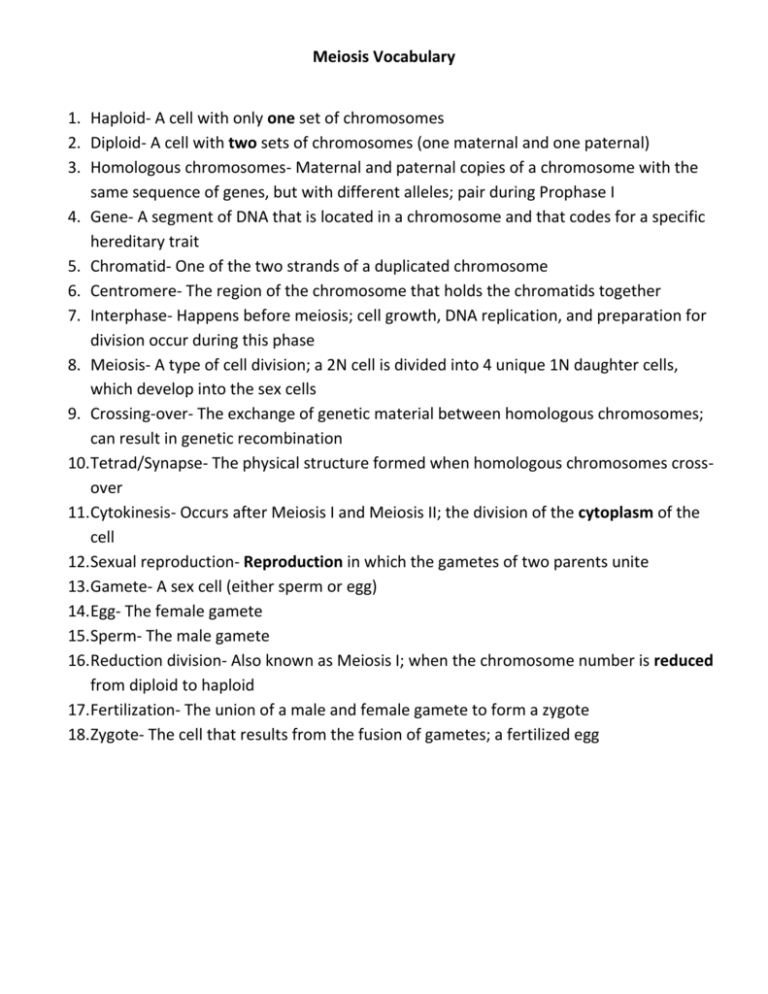
Meiosis Vocabulary 1. Haploid- A cell with only one set of chromosomes 2. Diploid- A cell with two sets of chromosomes (one maternal and one paternal) 3. Homologous chromosomes- Maternal and paternal copies of a chromosome with the same sequence of genes, but with different alleles; pair during Prophase I 4. Gene- A segment of DNA that is located in a chromosome and that codes for a specific hereditary trait 5. Chromatid- One of the two strands of a duplicated chromosome 6. Centromere- The region of the chromosome that holds the chromatids together 7. Interphase- Happens before meiosis; cell growth, DNA replication, and preparation for division occur during this phase 8. Meiosis- A type of cell division; a 2N cell is divided into 4 unique 1N daughter cells, which develop into the sex cells 9. Crossing-over- The exchange of genetic material between homologous chromosomes; can result in genetic recombination 10.Tetrad/Synapse- The physical structure formed when homologous chromosomes crossover 11.Cytokinesis- Occurs after Meiosis I and Meiosis II; the division of the cytoplasm of the cell 12.Sexual reproduction- Reproduction in which the gametes of two parents unite 13.Gamete- A sex cell (either sperm or egg) 14.Egg- The female gamete 15.Sperm- The male gamete 16.Reduction division- Also known as Meiosis I; when the chromosome number is reduced from diploid to haploid 17.Fertilization- The union of a male and female gamete to form a zygote 18.Zygote- The cell that results from the fusion of gametes; a fertilized egg
